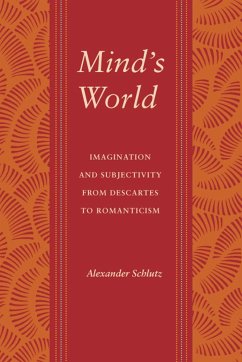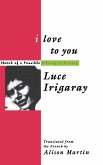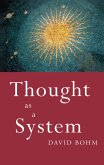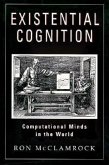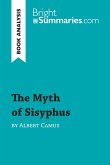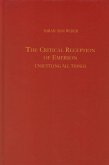- Broschiertes Buch
- Merkliste
- Auf die Merkliste
- Bewerten Bewerten
- Teilen
- Produkt teilen
- Produkterinnerung
- Produkterinnerung
Demonstrates how the ambivalence in the conceptions of imagination inform fundamental philosophical and aesthetic projects of European modernity
Andere Kunden interessierten sich auch für
![I Love to You I Love to You]() Luce IrigarayI Love to You163,99 €
Luce IrigarayI Love to You163,99 €![Thought as a System Thought as a System]() David BohmThought as a System181,99 €
David BohmThought as a System181,99 €![Existential Cognition: Computational Minds in the World Existential Cognition: Computational Minds in the World]() Ron McClamrockExistential Cognition: Computational Minds in the World54,99 €
Ron McClamrockExistential Cognition: Computational Minds in the World54,99 €![Philosophy and Oscar Wilde Philosophy and Oscar Wilde]() Philosophy and Oscar Wilde128,39 €
Philosophy and Oscar Wilde128,39 €![Heinrich Von Kleist Heinrich Von Kleist]() Tim MehiganHeinrich Von Kleist115,99 €
Tim MehiganHeinrich Von Kleist115,99 €![The Myth of Sisyphus by Albert Camus (Book Analysis) The Myth of Sisyphus by Albert Camus (Book Analysis)]() Bright SummariesThe Myth of Sisyphus by Albert Camus (Book Analysis)9,99 €
Bright SummariesThe Myth of Sisyphus by Albert Camus (Book Analysis)9,99 €![The Critical Reception of Emerson The Critical Reception of Emerson]() Sarah Ann WiderThe Critical Reception of Emerson111,99 €
Sarah Ann WiderThe Critical Reception of Emerson111,99 €-
-
-
Demonstrates how the ambivalence in the conceptions of imagination inform fundamental philosophical and aesthetic projects of European modernity
Hinweis: Dieser Artikel kann nur an eine deutsche Lieferadresse ausgeliefert werden.
Hinweis: Dieser Artikel kann nur an eine deutsche Lieferadresse ausgeliefert werden.
Produktdetails
- Produktdetails
- Verlag: University of Washington Press
- Seitenzahl: 344
- Erscheinungstermin: 1. Juli 2009
- Englisch
- Abmessung: 229mm x 151mm x 24mm
- Gewicht: 527g
- ISBN-13: 9780295988931
- ISBN-10: 0295988932
- Artikelnr.: 25685111
- Herstellerkennzeichnung
- Libri GmbH
- Europaallee 1
- 36244 Bad Hersfeld
- gpsr@libri.de
- Verlag: University of Washington Press
- Seitenzahl: 344
- Erscheinungstermin: 1. Juli 2009
- Englisch
- Abmessung: 229mm x 151mm x 24mm
- Gewicht: 527g
- ISBN-13: 9780295988931
- ISBN-10: 0295988932
- Artikelnr.: 25685111
- Herstellerkennzeichnung
- Libri GmbH
- Europaallee 1
- 36244 Bad Hersfeld
- gpsr@libri.de
Alexander M. Schlutz
Acknowledgments
Introduction
1. Epistemology, Metaphysics, and Rhetoric: Contexts of Imagination
Aristotle, Phantasia, and the Problem of Epistemology
Plato, the Neoplatonists, and the Vagaries of the Sublunar World
Phantasia and Ecstatic Knowledge
"A More Skillful Artist than Imitation"
2. Dreams, Doubts, and Evil Demons: Descartes and Imagination
Meditatio Prima: Certainty, the Cogito, and Imagination
Imagination in the Rules
Meditatio Secunda: The World of the Cogito
Descartes, Montaigne, and Pascal
Analogies and Enthusiasm
Excogitations: Fabulating the Cogito
3. The Reasonable Imagination: Immanuel Kant's Critical Philosophy
Imagination in the Limits of Pure Reason
Dreamers and Madmen: Imagination in Anthropology
Natural Art and Sublime Madness: Imagination in the Critique of Judgment
4. The Highest Point of Philosophy: Fichte's Reimagining of the Kantian
System
The Logics of Positing: Intellectual Intuition and the Absolute Subject
Ecstasy, Inspired Communication, and Philosophical Genius
Light, Dusk, and Darkness: The Reconciliation of Opposites
The Metaphysics of Oscillation and the Truth of Imagination
Reason's Fixations: Arresting Imagination
5. A System without Foundations: Poetic Subjectivity in Friedrich von
Hardenberg's Ordo Inversus
A System without Foundations
Fantasy and the Body
6. Divine Law and Abject Subjectivity: Coleridge and the Double Knowledge
of Imagination
Divine Imagination
The Abyss of the Empirical Self
Coda: Imagining Ideology
Conclusions
Notes
Bibliography
Index
Introduction
1. Epistemology, Metaphysics, and Rhetoric: Contexts of Imagination
Aristotle, Phantasia, and the Problem of Epistemology
Plato, the Neoplatonists, and the Vagaries of the Sublunar World
Phantasia and Ecstatic Knowledge
"A More Skillful Artist than Imitation"
2. Dreams, Doubts, and Evil Demons: Descartes and Imagination
Meditatio Prima: Certainty, the Cogito, and Imagination
Imagination in the Rules
Meditatio Secunda: The World of the Cogito
Descartes, Montaigne, and Pascal
Analogies and Enthusiasm
Excogitations: Fabulating the Cogito
3. The Reasonable Imagination: Immanuel Kant's Critical Philosophy
Imagination in the Limits of Pure Reason
Dreamers and Madmen: Imagination in Anthropology
Natural Art and Sublime Madness: Imagination in the Critique of Judgment
4. The Highest Point of Philosophy: Fichte's Reimagining of the Kantian
System
The Logics of Positing: Intellectual Intuition and the Absolute Subject
Ecstasy, Inspired Communication, and Philosophical Genius
Light, Dusk, and Darkness: The Reconciliation of Opposites
The Metaphysics of Oscillation and the Truth of Imagination
Reason's Fixations: Arresting Imagination
5. A System without Foundations: Poetic Subjectivity in Friedrich von
Hardenberg's Ordo Inversus
A System without Foundations
Fantasy and the Body
6. Divine Law and Abject Subjectivity: Coleridge and the Double Knowledge
of Imagination
Divine Imagination
The Abyss of the Empirical Self
Coda: Imagining Ideology
Conclusions
Notes
Bibliography
Index
Acknowledgments
Introduction
1. Epistemology, Metaphysics, and Rhetoric: Contexts of Imagination
Aristotle, Phantasia, and the Problem of Epistemology
Plato, the Neoplatonists, and the Vagaries of the Sublunar World
Phantasia and Ecstatic Knowledge
"A More Skillful Artist than Imitation"
2. Dreams, Doubts, and Evil Demons: Descartes and Imagination
Meditatio Prima: Certainty, the Cogito, and Imagination
Imagination in the Rules
Meditatio Secunda: The World of the Cogito
Descartes, Montaigne, and Pascal
Analogies and Enthusiasm
Excogitations: Fabulating the Cogito
3. The Reasonable Imagination: Immanuel Kant's Critical Philosophy
Imagination in the Limits of Pure Reason
Dreamers and Madmen: Imagination in Anthropology
Natural Art and Sublime Madness: Imagination in the Critique of Judgment
4. The Highest Point of Philosophy: Fichte's Reimagining of the Kantian
System
The Logics of Positing: Intellectual Intuition and the Absolute Subject
Ecstasy, Inspired Communication, and Philosophical Genius
Light, Dusk, and Darkness: The Reconciliation of Opposites
The Metaphysics of Oscillation and the Truth of Imagination
Reason's Fixations: Arresting Imagination
5. A System without Foundations: Poetic Subjectivity in Friedrich von
Hardenberg's Ordo Inversus
A System without Foundations
Fantasy and the Body
6. Divine Law and Abject Subjectivity: Coleridge and the Double Knowledge
of Imagination
Divine Imagination
The Abyss of the Empirical Self
Coda: Imagining Ideology
Conclusions
Notes
Bibliography
Index
Introduction
1. Epistemology, Metaphysics, and Rhetoric: Contexts of Imagination
Aristotle, Phantasia, and the Problem of Epistemology
Plato, the Neoplatonists, and the Vagaries of the Sublunar World
Phantasia and Ecstatic Knowledge
"A More Skillful Artist than Imitation"
2. Dreams, Doubts, and Evil Demons: Descartes and Imagination
Meditatio Prima: Certainty, the Cogito, and Imagination
Imagination in the Rules
Meditatio Secunda: The World of the Cogito
Descartes, Montaigne, and Pascal
Analogies and Enthusiasm
Excogitations: Fabulating the Cogito
3. The Reasonable Imagination: Immanuel Kant's Critical Philosophy
Imagination in the Limits of Pure Reason
Dreamers and Madmen: Imagination in Anthropology
Natural Art and Sublime Madness: Imagination in the Critique of Judgment
4. The Highest Point of Philosophy: Fichte's Reimagining of the Kantian
System
The Logics of Positing: Intellectual Intuition and the Absolute Subject
Ecstasy, Inspired Communication, and Philosophical Genius
Light, Dusk, and Darkness: The Reconciliation of Opposites
The Metaphysics of Oscillation and the Truth of Imagination
Reason's Fixations: Arresting Imagination
5. A System without Foundations: Poetic Subjectivity in Friedrich von
Hardenberg's Ordo Inversus
A System without Foundations
Fantasy and the Body
6. Divine Law and Abject Subjectivity: Coleridge and the Double Knowledge
of Imagination
Divine Imagination
The Abyss of the Empirical Self
Coda: Imagining Ideology
Conclusions
Notes
Bibliography
Index

